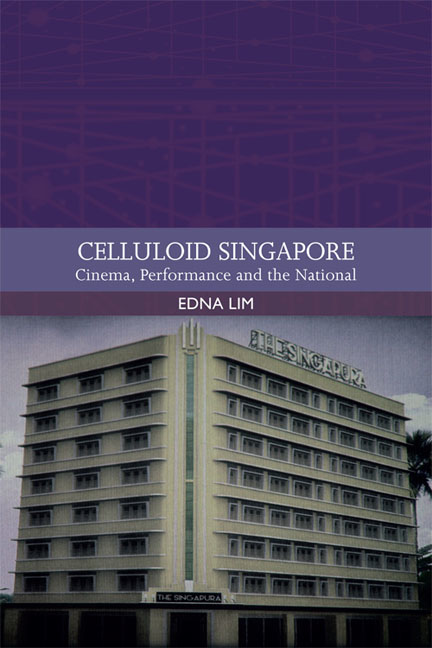Book contents
- Frontmatter
- Contents
- List of Figures
- Acknowledgements
- Traditions in World Cinema
- 1 Introduction
- 2 Merdeka!: Merger, Separation and a Transnational Golden Age
- 3 Influence, Hybridity and How the Past is a Foreign Country
- 4 Nation-building, a Nun and a Bionic Boy
- 5 Not so Foreign: the Case of Saint Jack
- 6 One People, One Nation, One Singapore
- 7 Revival Cinema: ‘Other’ Singaporeans in (An)other Singapore
- 8 Singapore Cinema in Singapore
- Works Cited
- Index
4 - Nation-building, a Nun and a Bionic Boy
Published online by Cambridge University Press: 11 November 2020
- Frontmatter
- Contents
- List of Figures
- Acknowledgements
- Traditions in World Cinema
- 1 Introduction
- 2 Merdeka!: Merger, Separation and a Transnational Golden Age
- 3 Influence, Hybridity and How the Past is a Foreign Country
- 4 Nation-building, a Nun and a Bionic Boy
- 5 Not so Foreign: the Case of Saint Jack
- 6 One People, One Nation, One Singapore
- 7 Revival Cinema: ‘Other’ Singaporeans in (An)other Singapore
- 8 Singapore Cinema in Singapore
- Works Cited
- Index
Summary
GOING GLOBAL: INDUSTRIALISATION AND URBANISATION
On 9 August 1965, Singapore's Prime Minister Lee Kuan Yew was deeply emotional when he appeared on a televised press conference to talk about the country's separation from Malaysia. He said:
Every time we look back on this moment when we signed this agreement which severed Singapore from Malaysia, it will be a moment of anguish. For me it is a moment of anguish because all my life … you see, the whole of my adult life … I have believed in merger and the unity of these two territories. You know, it's a people connected by geography, economics and ties of kinship … Would you mind if we stop for a while? [Recording was stopped for the Prime Minister to regain his composure]
Four months later, he seemed much more composed and confident in his speech to residents of the Pasir Panjang constituency:
You know, there is a great deal of strength and stamina in this place. It's the human beings – the skill, the versatility, the expertise, the drive, the relentless pursuit of success and performances – that have made this island what it is. But now, with independence comes independence of action, opportunities to create the conditions for the eventual success of what we want: survival in Southeast Asia, a very turbulent part of the world, as a separate and distinct people, not absorbed or swallowed up by more backward hordes and bigger hordes.
Indeed, Singapore's survival would be of utmost concern in the years following its independence as the government went about the business of nationbuilding that, according to Selvaraj Velayutham, is ‘a political process of constructing a “nation” and a sense of belonging via the state’. Prior to 1965, the idea of Singapore as an independent political entity was, as Chua Beng Huat argues, an ‘absence’. Yet, because Singapore achieved internal self-rule in 1959, the state, as it were, was already formed before independence; it had its own government led by the ruling PAP, national flag and anthem, and head of state in the form of the Yang di Pertuan Negara as well as a prime minister.
- Type
- Chapter
- Information
- Celluloid SingaporeCinema, Performance and the National, pp. 69 - 91Publisher: Edinburgh University PressPrint publication year: 2018



